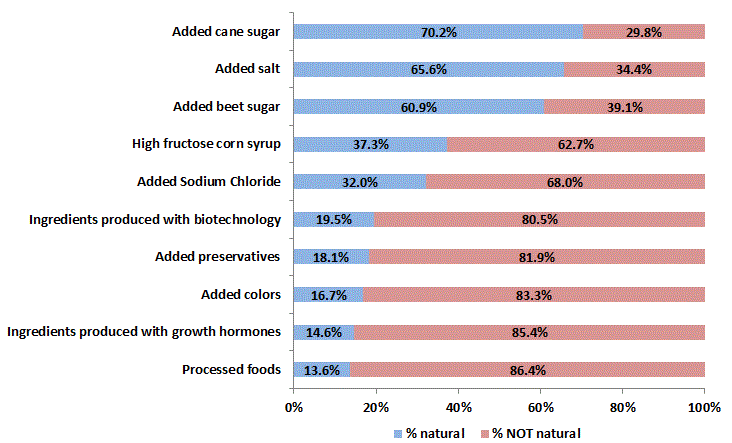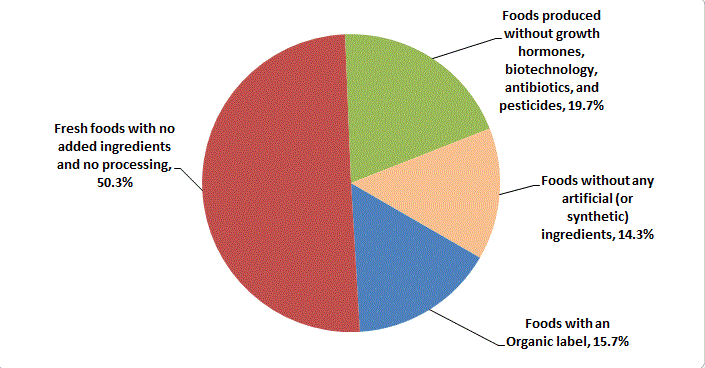The newest release of our monthly, nationwide food demand survey (FooDS) is now up. The report contains data on trends in meat demand and awareness and concern over various food issues.
Given the renewed interesting in mandatory labeling for genetically engineered food, we added two new questions to the July survey (if you're interested, you can see the results of a previous survey we conducted in California just before the Prop 37 vote); a version of that report is coming out in the Journal of Agricultural and Resource Economics).
The first question on GMO labeling asked in the most recent survey was worded:
Which of the following do you think the FDA or USDA should require to be labeled on food packaging?
Then, 10 items were listed, and respondents had to place four and only four items in a box indicating which items they though were most important to label. Here are the results.
I must say that I am shocked by the results. 63.6% said they thought "added growth hormones and antibiotics" should be labeled followed by 55% who said "GMOs." Oddly, those items which ARE currently required to be labeled, including fat content, total calories, and known allergens (e.g., nuts), fell further down the list. At first I thought this might be a mistake, but after double and triple checking the data, this is apparently how consumers responded. Perhaps they take currently mandated information (e.g., calorie content) for granted (or don't realize it is mandated). Perhaps GMOs are just more in news these days drawing attention? On a technical note, the order of the 10 items was randomized across respondents, so these findings cannot result from some sort of order effect. All in all, I'm not sure what is driving the result but I welcome any insights if you have them.
Secondly, we asked consumers:
Which of the following best describes your views on mandatory labeling of foods containing genetically modified (GMO) ingredients?
They could pick one (and only one) of the following responses:
- I support mandatory labeling because consumers have a right to know regardless of the cost
- I support mandatory labeling, but only if it doesn't significantly raise food prices or cause frivolous lawsuits
- I do not support mandatory labeling because voluntary labeling exists and will thrive if consumers really want to avoid GMOs
- I do not support mandatory labels because the scientific consensus suggests GMOs are safe to eat
- I don't know (5)
Here are the results
A majority (54%) said they wanted mandatory GMO labeling because they said they had a right to know regardless of the costs. This result is surprisingly high and doesn't quite mesh with the actual voting outcome in California (or our previous survey which showed voting intentions influenced by cost and information).
As I articulated in several editorials in Sept-November last year, I do not think the economic arguments for mandatory GMO labeling are particularly strong (voluntary labeling is a different matter all together). These survey results suggest little public support for that particular view. However, there is also ample evidence to show that most consumers are woefully uninformed about biotechnology and that information can have big effects on attitudes (and as Prop 37 showed - voting outcomes).



